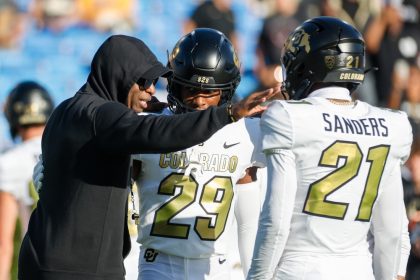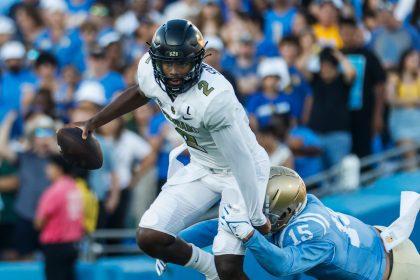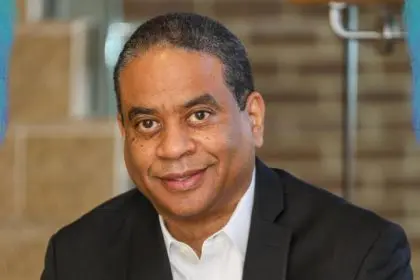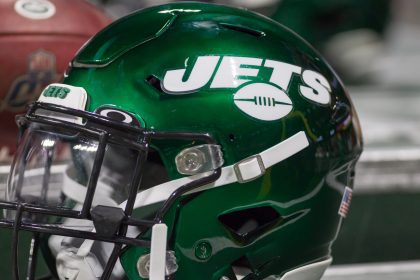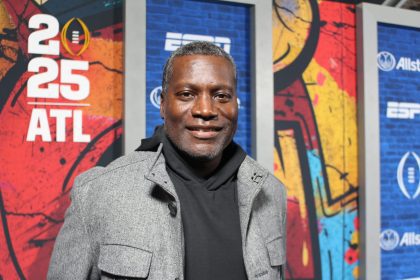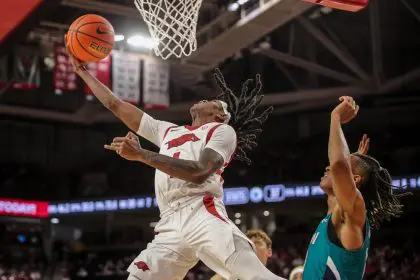Notre Dame secured their spot in the national championship with a thrilling 27-24 victory over Penn State in the Orange Bowl semifinal. The game came down to the final moments, with a late-game interception and clutch field goal sealing the win for the Fighting Irish.
Quarterback Riley Leonard led Notre Dame’s offensive charge with poise, while the defense made crucial stops when needed most. Penn State’s Drew Allar showed resilience throughout the contest, but the Irish defense prevailed in the critical closing minutes. Both teams brought their A-game, reflecting the determination and strategic brilliance of their head coaches.
A milestone moment
Beyond the scoreboard, this game marked the first time two Black head coaches, Marcus Freeman of Notre Dame and James Franklin of Penn State, faced each other in a College Football Playoff (CFP) semifinal. Their presence in this high-stakes game represents a significant step toward diversity in collegiate athletics leadership.
Among Football Bowl Subdivision (FBS) programs, only 16 out of 134 have Black head coaches, making this matchup particularly meaningful for the sport’s future. The game demonstrated the impact of increased representation at football’s highest levels.
The meeting of two Black head coaches in a CFP semifinal represents a moment decades in the making. For a sport where leadership opportunities for minorities have been limited, this game served as a beacon of progress and hope.
For young Black athletes and aspiring coaches, seeing Freeman and Franklin on this stage provides tangible proof that their dreams are achievable. It sends a powerful message that excellence and opportunity are not limited by race but can thrive on talent, hard work, and determination.
Leadership in action
Freeman, a rising star in the coaching world, has led Notre Dame to their first national championship game appearance in over a decade. His journey reflects resilience, vision, and an ability to inspire his team to perform at their best. With Notre Dame’s victory, Freeman became the first Black head coach to lead a team to the CFP National Championship game.
Franklin’s leadership at Penn State has been characterized by consistency and a commitment to excellence, with multiple bowl wins and Big Ten championships under his belt. Together, they demonstrated that Black coaches can thrive in high-pressure, elite-level sports environments when given the opportunity.
The cultural significance
Freeman’s advancement to the national championship game amplifies the importance of representation in leadership positions. His success challenges systemic barriers that have long hindered minority representation in head coaching positions and sets a new precedent for what is possible in the sport.
Both coaches have acknowledged the weight of this moment. Freeman stated, “This is bigger than me. It’s about opening doors and showing what’s possible.” Franklin echoed this sentiment, emphasizing the importance of normalizing diversity in leadership roles across college football.
Changing perceptions
The success of Freeman and Franklin challenges outdated perceptions about who can lead at the highest levels of collegiate sports. It shows that leadership is not determined by skin color but by vision, strategy, and the ability to inspire greatness.
Their achievements prompt universities and athletic programs to rethink hiring practices and invest in cultivating a more diverse pipeline of coaching talent. As they continue to thrive, their success creates a blueprint for others to follow, expanding opportunities for minority coaches.
This historic Orange Bowl matchup celebrates diversity and the richness it brings to sports. It highlights how embracing different perspectives strengthens teams and enriches the cultural fabric of the game. Their success may influence future hiring decisions and create more opportunities for diverse candidates in leadership positions.
The achievements of both coaches demonstrate that leadership excellence comes in many forms. Their success on this national stage provides concrete evidence that talent and ability transcend traditional barriers when given the chance to flourish.
Inspiring future generations
The impact of this game extends to aspiring coaches and young athletes who see new possibilities in their own futures. Freeman and Franklin’s presence in this high-stakes matchup shows that the path to leadership positions is opening wider for talented individuals from all backgrounds.
Their success stories serve as inspiration for the next generation of coaches, proving that with dedication, skill, and opportunity, traditional barriers can be overcome. The visibility of their achievements helps normalize diversity in leadership positions across college athletics.
As Notre Dame prepares for the national championship game, Freeman’s leadership continues to break new ground. His presence in the title game represents another milestone in college football’s evolution toward greater inclusivity.
This is more than a game; it marks a turning point in the cultural and social landscape of college athletics. It serves as a powerful reminder that representation in leadership matters and that the possibilities are limitless when talent is given room to shine.


